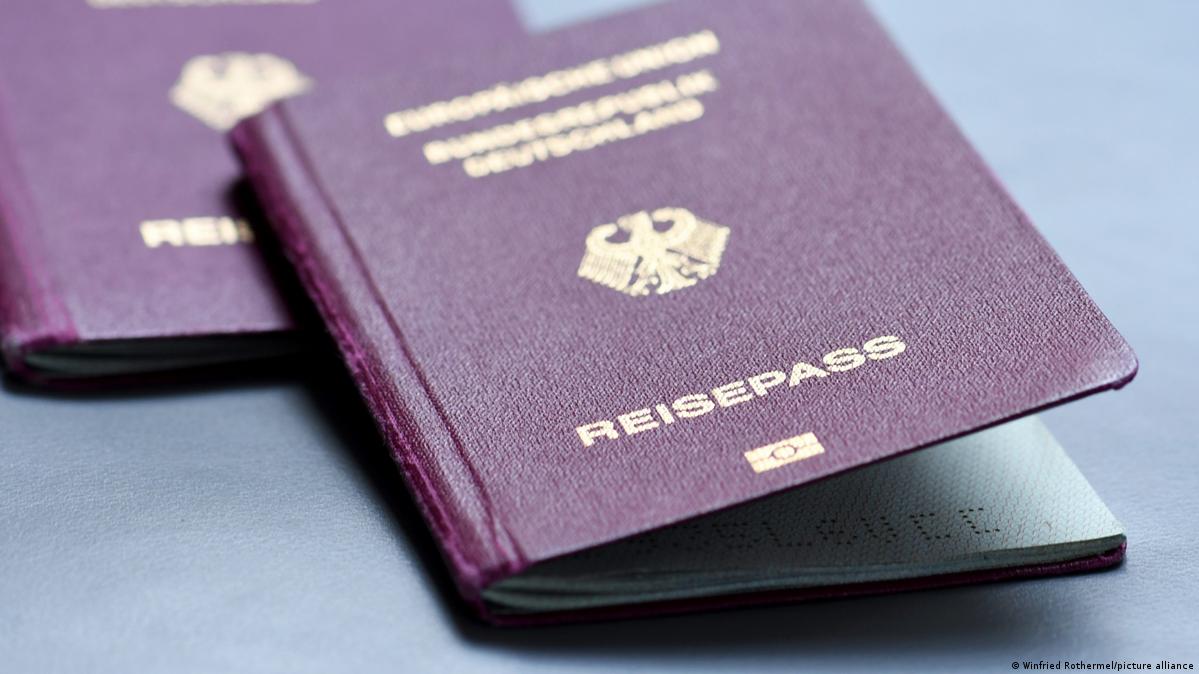Due to the Shortage of Labor, Germany Will Ease the Conditions for Citizenship

A spokesman for the German Ministry of the Interior announced that the government is preparing a legal reform to simplify the procedures for obtaining German citizenship, including changes to residency and dual nationality.
The spokesman stated that obtaining citizenship should be possible after living 5 years in Germany instead of 8 years, and if the foreigner is well integrated, according to his performance at school or at work, then the period can be reduced to 3 years.
It will be easier for parents of the generation of migrant workers who arrived in Germany in the 1970s to be naturalized because their integration has been discouraged for many years, he added.
On the other hand, the possibilities of obtaining German citizenship, in addition to another nationality, will be expanded to include more countries.
Many foreigners do not currently apply for German citizenship because they are forced to give up their original citizenship.

Easing the Procedures
The Interior Ministry will soon present its project to other ministries, the spokesman noted, and once all the details are settled, the project will be approved by the Council of Ministers.
Since its formation at the end of November 2021, the government of Social Democrat Olaf Scholz, who runs the country with the Green and Liberal parties, has announced its intention to update German citizenship law.
In the coalition contract, the Scholz government proposed to provide German citizenship to a child born in Germany to two foreign parents if one of them had a residence permit for at least 5 years, and this comes while the law currently applies to those who have a residence permit for 8 years.
On Monday, the German Ministry of the Interior defended the government’s plan to facilitate the acquisition of German citizenship, despite complaints within the ruling coalition and the opposition and warnings of illegal immigration due to this procedure.
The government has said it wants to boost immigration and training to tackle a skills shortage that is weighing on the country’s economy at a time when an aging population is piling pressure on the public pension system.
“This is a central plan for this coalition, with the clear recognition that Germany is a country of immigration,” said a spokesman for the Interior Ministry, adding during a press conference: “We are talking about a plan laid out in minute detail in the coalition agreement.”
Interior Minister Nancy Faeser of the Social Democrats hopes to reduce the maximum number of years a person must wait before becoming a German citizen from eight to five and lift restrictions on dual citizenship.

Labor Shortage
Behind the amendment, Germany wants to attract the skilled foreign workers necessary for its economy in the face of labor shortages by reducing bureaucratic obstacles.
The first economy in Europe seeks to deal with a population structure dominated by aging in large part of it, while it lacks workers in the field of health in particular, and also those who are able to lead digital transformations and in the field of energy.
In a document submitted last September, the German government estimated the shortage of skilled workers at about 240,000 by 2026.
Last September, the Federal Statistical Office in Germany stated that refugees from Ukraine contributed to raising the country’s population to its highest levels, as more than 84 million people currently live in the largest European Union country in terms of population.
The Statistics Office indicated, in a statement, that the population increased by 1%, at a rate of 843,000 people in the first half of 2022, while the population grew by only 0.1% over the course of the entire year 2021, and Germany recorded a net immigration of 750,000 people from Ukraine during the same period.
Germany has grown on a similar scale 3 times since German reunification in 1990, and each time it has been associated with a wave of refugees. In 1992, refugees from the war in the former Yugoslavia helped the population swell by 700,000. Nearly a million refugees entered, fleeing war in the Middle East.

Sense of Belonging
In an interview with Al-Estiklal, Hamza Guenouni, expert on sociology and researcher at Kent University, said: “It is good to know that it would be easier to grant nationality to the generation of migrant workers who arrived in Germany in the 1970s. Germany suffered from many problems and difficulties in integrating immigrants because of the laws that impeded the naturalization of workers during the seventies, and the matter had exorbitant social consequences.”
He added: “The children of second- or third-generation immigrants who were born and raised in Germany find it difficult to integrate in light of the obstacles their immigrant parents faced in obtaining citizenship, despite the passage of many years since their immigration. Not obtaining citizenship leads to a lack of a sense of belonging to the country and makes the immigrant feel throughout their life that they are foreigners in a country they will leave after a while.”
The German language requirements for citizenship will be eased for members of the so-called generation of foreign employees and workers, many of whom are Turks, who came to Germany in the 1950s and 1960s as foreign employees and workers.
The draft may be subject to amendments, as it will be presented to other government ministries for advice in the coming days, after which it must be approved by the three-party government and then presented to lawmakers in the German parliament (Bundestag).
The general secretary of the Free Democratic Party, the least influential coalition partner with the Social Democratic Party and the Green Party, expressed his objection to the plan.
It was not specified whether other restrictions would remain in place for obtaining a German passport, which mainly target the original identity forgers, those classified as terrorists and polygamists.
The current law prevents people from obtaining German citizenship who have been married several times abroad. The deputy head of the parliamentary bloc of the Christian Union, Thorsten Frei, in the event of multiple marriages, a German passport cannot be granted.
Naturalization is also linked to harmony with the German lifestyle, in addition to language knowledge and a monthly income that guarantees subsistence.
Sources
- Germany makes it easier to obtain its nationality.. What will change? [Arabic]
- Know the most important features proposed by Berlin to facilitate the acquisition of German citizenship [Arabic]
- Germany is tightening the conditions for granting citizenship, despite its need for immigrants.. Here are the most important amendments [Arabic]









